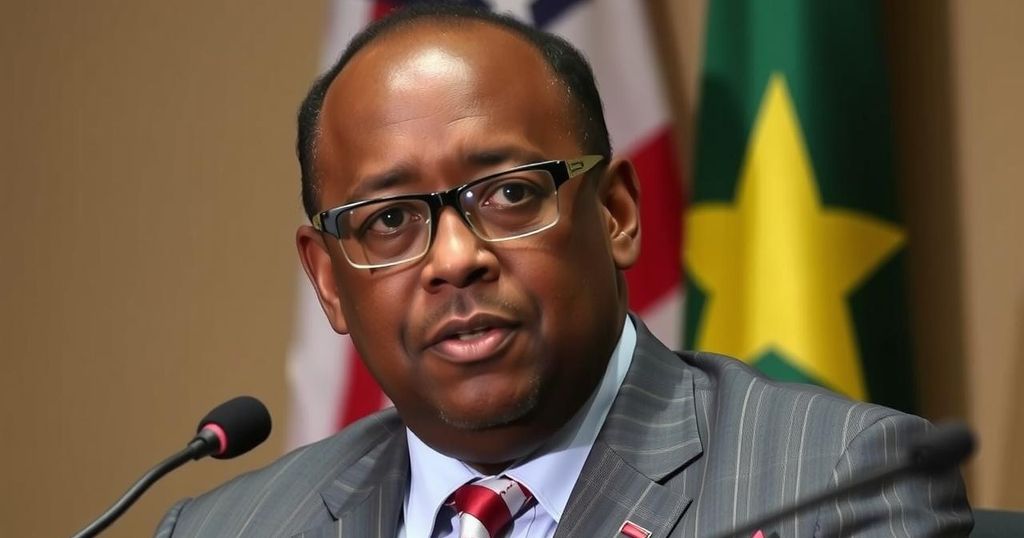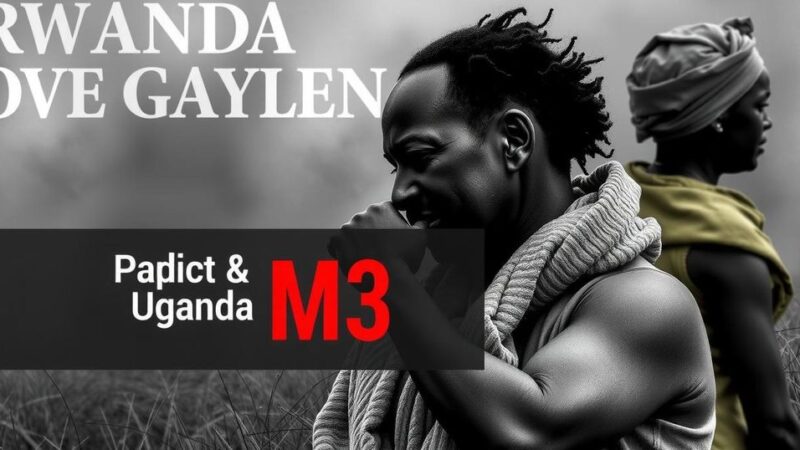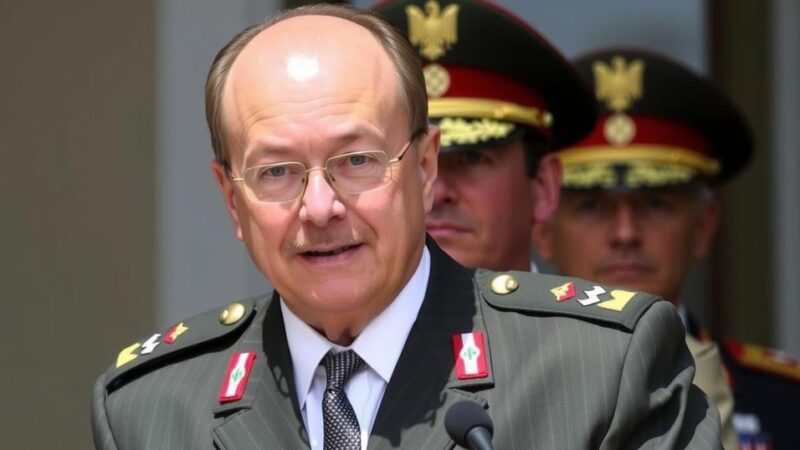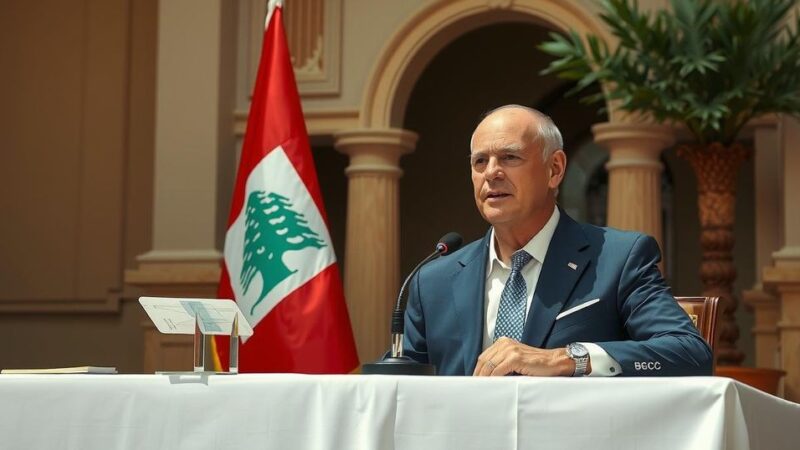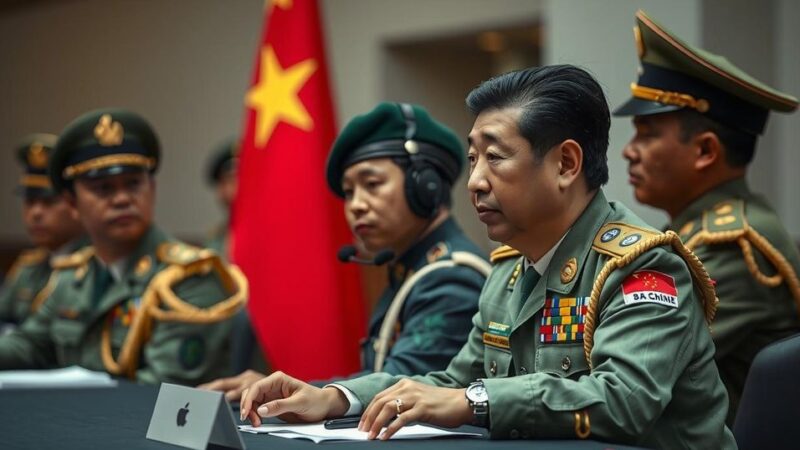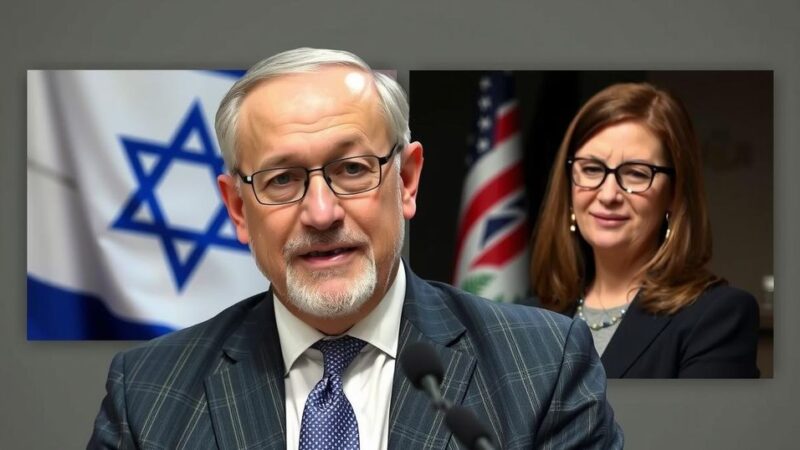The US has accused Sudan’s RSF of genocide, imposing sanctions on its leader, Hemedti. Secretary of State Blinken highlighted systematic atrocities, including targeting civilians and ethnic violence. The RSF responded, claiming US actions show double standards. The ongoing conflict has resulted in a humanitarian crisis affecting millions in Sudan.
The United States government has officially accused the Rapid Support Forces (RSF), a Sudanese paramilitary group, of committing genocide against its own people. U.S. Secretary of State Antony Blinken announced on Tuesday that sanctions would be imposed on RSF leader Mohamed Hamdan Dagalo, known as Hemedti, citing his involvement in systematic atrocities during the ongoing 20-month conflict. Blinken detailed horrific acts attributed to the RSF, including the murder of men, boys, and infants, as well as sexual violence carried out on ethnic grounds.
Furthermore, Blinken condemned the RSF for targeting fleeing civilians and committing heinous murders of innocent individuals attempting to escape the violence. Based on collected evidence, he concluded that the RSF and its allied militias have indeed perpetrated genocide in Sudan. In reaction to these sanctions, the RSF has characterized the U.S. actions as hypocritical, accusing the Biden administration of failing to appropriately manage the Sudanese crisis. El-Basha Tbaeq, an adviser to Hemedti, stated that these decisions may complicate the situation and obstruct vital negotiations aimed at addressing the conflict’s root causes.
Since April 2023, the RSF has been engaged in a violent struggle against the Sudanese military, with both factions implicated in numerous atrocities, thereby exacerbating one of the world’s most severe humanitarian crises. Estimates from U.S. special envoy for Sudan, Tom Perriello, indicate that up to 150,000 people may have lost their lives as a result of the conflict. It has also been reported that famine conditions have emerged in several regions of Sudan, affecting approximately 24.6 million people in dire need of food assistance.
Blinken further commented that neither the RSF nor the Sudanese military possess the legitimacy required to govern in a peaceful Sudan, stating that both sides must be held responsible for the continued violence and suffering. The sanctions against Hemedti prevent him and his immediate family from visiting the United States, and they also block any personal assets located there. Additionally, seven companies owned by the RSF in the United Arab Emirates, along with another individual, are to be sanctioned for their assistance in supplying weapons to the group.
The conflict in Sudan has escalated dramatically since April 2023, leading to widespread violence and immense humanitarian crises. The RSF, emerging from a history of brutal militia tactics, has faced scrutiny for its actions against civilian populations, while the Sudanese military has also been implicated in similar crimes. With millions in need of aid and a large number of casualties reported, the international community, particularly the United States, is taking measures to hold accountable those responsible for atrocities in the conflict. Understanding of the situation requires recognizing the historical context of Sudanese paramilitary forces and the underlying ethnic tensions that fuel their violence.
In summary, the United States has taken a significant stance against the RSF in Sudan by labeling its actions as genocide and imposing sanctions on its leader, Hemedti. The accusations reflect the ongoing atrocity unfolding in the region, with an emphasis on how both the RSF and the Sudanese military are unfit for governance. The international community’s response underscores the urgent need for accountability and humanitarian assistance in a country ravaged by conflict.
Original Source: www.bbc.com

